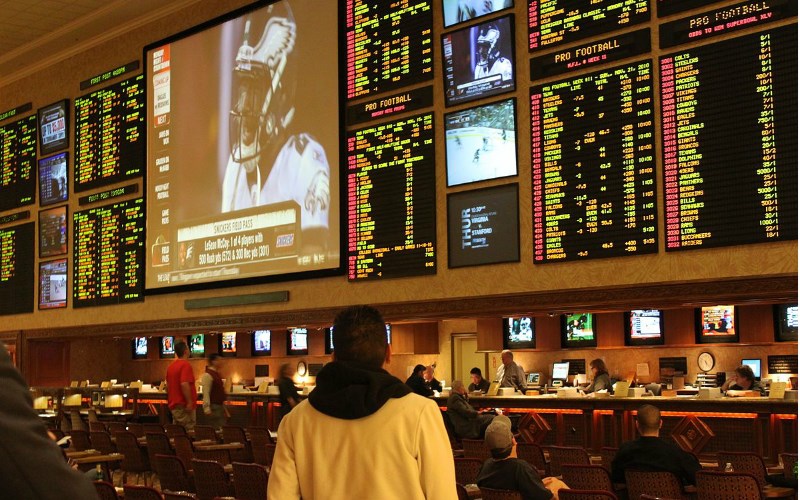The San Francisco 49ers and the Kansas City Chiefs kick off Super Bowl LVIII at 6:30 p.m. ET, and the game is expected to generate roughly $23.1 billion in sports betting from 67 million Americans.
Players, coaches and fans around for the first Super Bowl* would not have predicted this. From its inception the NFL had distanced itself from sports gambling. In the 1960s, for example, two of its biggest stars – Packers running back Paul Hornung and Lions defensive tackle Alex Karras – were suspended for an entire season for betting on games.
NFL Commissioner Pete Rozelle feared then that an association with gambling could hurt the integrity of his growing sport.
"I also took into account that the violations of Hornung and Karras were continuing, not casual," Rozelle said. "They were continuing, flagrant and increasing. Both players had been informed over and over of the league rule on gambling. The rule is posted in every clubhouse in the league as well … I could only exact from them the most severe penalty short of banishment for life," Rozelle was quoted by Sports Illustrated in a look-back piece in 2021.
Times have changed. In 2018, the Supreme Court struck down a 1992 law that had outlawed sports betting in most states, Nevada being an exception.

"The money's just too big. They're going after the bucks, and they don't care about the social and economic consequences," John Kindt, a professor emeritus of business administration in the University of Illinois system, said on Washington Watch Thursday.
Society's perception of gambling is different now than it was in the early 1990s, during the George H.W. Bush administration. State lotteries became more prevalent. The fantasy sports industry was born. Individual NFL teams began to sign deals with sportsbook companies as they began advertising during NFL games. Other sports leagues were taking notice of the $400 billion annual net worth of underground sports betting.
NBA Commissioner Adam Silver in 2014 wrote an op-ed for The New York Times calling for legalization and regulation of sports betting.
'Past posting' can lead to present poverty
Kindt told show host Tony Perkins that millions of Americans voluntarily submit their losing bets through a process called "past posting." In casino games, the term refers to placing a bet after the outcome of the bet has become known.
When bettors place a bet online, the speed of their internet connection runs slightly behind live action on the fields and in the arenas.
"The plays have already been run, and people are still taking bets on these. So, the sportsbooks will take the bets if they're going to win, and they won't take the bets if they're going to lose, but they know in advance. All these hot-shot young people out there who think that this is a level playing field are being cheated on sports gambling," Kindt said.
The American Psychiatric Association has designated gambling as a disorder, according to its website.
Brian Miller, the president of the American Gaming Association, disagrees. He told 60 Minutes last Sunday that he "doesn't believe there's an addiction to mobile betting any more than there is an addiction to utilization of your phone for any other reason."
Kindt: Consider the source
Kindt said the gaming industry should not be the go-to source to determine gambling addiction.
"I have a report back from the 1990s financed by the gambling industry. They were trying to push the American Psychiatric Association into not declaring this an addiction. They know that this is an addiction. They've spent millions of dollars trying to move academia the other way."
* Editor's note: The designation "Super Bowl" began officially in January 1969. The game was actually called the "AFL-NFL Championship Game" the two years prior.







